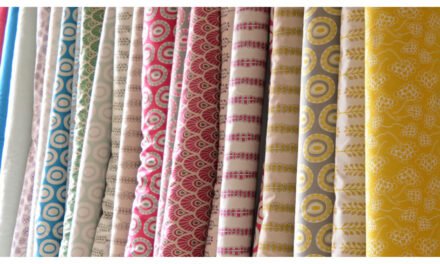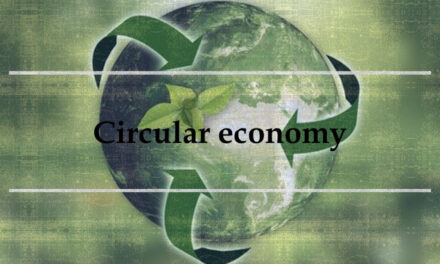 Austria’s Lenzing Group, a leading provider of specialty fibres for the textile and nonwoven industries, has posted a 16.9 percent year-on-year (YoY) increase in revenue to 2.57 bn euro in financial year 2022 (FY22). Earnings before interest, tax, depreciation, and amortisation (EBITDA) decreased by 33.3 percent YoY to 241.9 mn euro in FY22.
Austria’s Lenzing Group, a leading provider of specialty fibres for the textile and nonwoven industries, has posted a 16.9 percent year-on-year (YoY) increase in revenue to 2.57 bn euro in financial year 2022 (FY22). Earnings before interest, tax, depreciation, and amortisation (EBITDA) decreased by 33.3 percent YoY to 241.9 mn euro in FY22.
The net result for FY22 was minus 37.2 mn euro, compared with 127.7 mn euro in FY21, while earnings per share stood at minus 2.75 euro, compared with 4.16 euro in FY21. Furthermore, the EBITDA margin was 9.4 percent, compared to 16.5 percent in FY21, the company said.
The quantity of fibre sold decreased, while the quantity of pulp sold rose. In addition to lower demand, the earnings trend particularly reflects the increase in energy and raw material costs.
Given the trend in earnings and the pronounced deterioration in market conditions, Lenzing launched a reorganisation and cost reduction programme in the third quarter of FY22. Implementation of the programme is proceeding according to plan and is expected to save at least 70 mn euro in costs per year once fully implemented.
At the same time, additional measures will be adopted to strengthen free cash flow, which stands at minus 740.7 mn euro for FY22. This is mainly attributable to the investments in Brazil and Thailand. Thus, in addition to the cost reduction programme of 70 mn euro, further steps will be taken in the months ahead to reduce working capital and reposition currency and energy price hedging. The temporary suspension of dividend payments is expected to boost free cash flow. All of these measures are being implemented against a backdrop of solid liquidity reserves amounting to 686 mn euro.
As the company’s lyocell plant in Thailand is now fully operational, Lenzing has the capacity to increase its share of specialty fibres substantially and is even better equipped to meet structurally rising demand for environmentally friendly Tencel and Veocel branded lyocell fibres. With a nominal capacity of 100,000 tonnes per year, the new production plant is the largest of its kind worldwide. The requisite dissolving wood pulp will also be provided by the new plant in Brazil in future. Despite multiple challenges, especially relating to the pandemic, Lenzing realised both projects on time and within the planned budget, and has successfully placed the volumes produced to date on the market.
In China and Indonesia, Lenzing is currently converting existing capacities for conventional viscose into those for environmentally friendly specialty fibres. In Nanjing, Lenzing is about to complete the conversion of a production line to Tence modal fibres. In Purwakarta, the company is creating additional capacities for Lenzing Ecovero branded fibres. The Indonesian site is set to become a pure specialty viscose provider in 2023.
The company underwent significant changes to its managing board in FY22. Stephan Sielaff replaced Cord Prinzhorn as CEO, while the managing board was reduced to four members. Nico Reiner became the new Chief Financial Officer, succeeding Thomas Obendrauf, and Christian Skilich’s mandate as chief pulp officer was extended early by a further three years until May 31, 2026.
Lenzing reviewed its corporate strategy and will continue to pursue its profitable growth path following the successful implementation of the two key projects in Thailand and Brazil, sharpen its focus on sustainable and high-quality premium fibres for textiles and nonwovens, and further advance the transition from a linear to a circular economy model, the release added.
The company also enhanced its brands’ visibility in FY22 through targeted communication measures. The Tencel brand remains the fastest growing ingredient brand in the textile and clothing industry, reaching second place in the global brand awareness ranking.
In structural terms, Lenzing expects a continued rise in demand for environmentally friendly fibres in the textile and clothing industry in FY23, as well as in the hygiene and medical sectors. Thus, with its ‘Better Growth’ strategy, the company is well positioned and will continue to drive growth in specialty products, while pursuing its sustainability targets including the transformation from a linear to a circular economy model.
The company expects a further market recovery in the current financial year and estimates EBITDA in FY23 to be in a range of 320 mn euro to 420 mn euro.
“Lenzing faced extraordinary headwinds due to the multiple crises last year. Nevertheless, we can look forward with great confidence, as the need for sustainable innovations in the medium and long term is undiminished, while the demand for environmentally friendly fibres will continue to grow. We will make structural adjustments to our cost base and emerge stronger from this crisis,” said Stephan Sielaff, CEO of the Lenzing Group. “Having responded quickly and decisively to all these external challenges, we can also be very proud of our outstanding achievements including the implementation of our investment projects in Thailand and Brazil.”





















